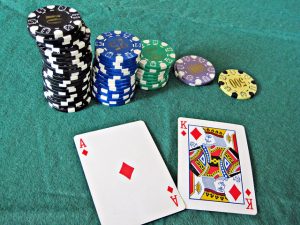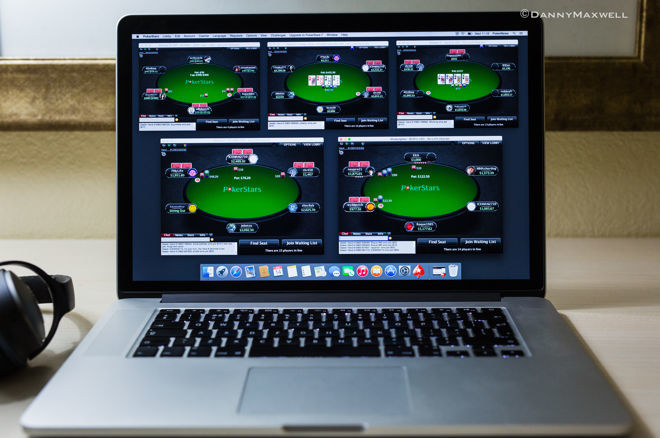Online Poker Tournaments Strategy: Five Tips for Winning Big While Playing Small Stakes
Small stakes online poker tournaments are fantastic fun. They can be frustrating at times — I’ll give you that — but for the most part, it is difficult not to enjoy yourself while competing in one.
They are also potentially lucrative beasts, not least because they tend to attract players in droves. On some sites — in particular PokerStars — tournaments with buy-ins as small as $1-$10 may see several thousand hopefuls take to the virtual felt in the hope of turning their tiny investments into much more meaningful sums.
Best casino slots in 2023 USA

300% Welcome Bonus |

Choose 100% Bonus |

Take 100% Welcome Bonus |

100% free spins |

As you can imagine, the majority of these huge fields are populated with recreational players and therefore the standard of play is, as a rule, very poor. That’s not to say navigating your way through the crowds and winning one of these things is an easy task, because it isn’t. In other words, don’t think you’re going to deposit $200 online, play a bunch of these tournaments, and suddenly be rolling in cash like Scrooge McDuck in Ducktails. It’s not going to happen.
What is going to happen, or what should happen, is that you continue reading this article — and others you find in the Strategy section — and once you’ve armed yourself with the weapons of knowledge, you go out there and apply that learning to do more than just enjoy these tournaments, but to profit from them as well.
Here are five tips designed to help you both prepare for and find success in small stakes online tourneys.
1. Be Prepared For a Long Session
Most of these low buy-in, big field tournaments take several hours to complete, so you need to be prepared to play for a long time. Be patient as always, but also be ready for a lengthy grind should you go deep in the event.

I’ve been fortunate enough to chop the $3.30 rebuy on PokerStars twice. On both occasions the tournament started at around 7:00 p.m and we finished at 6:30 a.m. This is all well and good if you are a poker pro who can sleep the next day, but you have to take into consideration work commitments if you have a job. Know what you’re potentially getting yourself into when registering for these events.
2. Be Prepared For Some Crazy Swings
The variance in small stakes poker tournaments is huge because of the sheer number of opponents you have to get through and the fact many of these opponents can be nearly impossible to put on a hand. Also of significance when playing against a large field full of recreational players is the possibility of players calling your raises — even your all-in ones — with some ridiculous holdings, adding further to the unpredictability of outcomes.

While this situation is very favorable in the long run, over the short term you can often find yourself running worse than you ever thought possible. Make sure therefore you have an ample bankroll to fall back on when times are hard — something in the range of 200-300 times of your average buy-in (I’d recommend).
3. Keep it Simple and Value Bet Your Hands to the Max
DO NOT try to run an elaborate bluff at any stage of the tournament because it will only lead to tears of sorrow. A lot of your opponents only care what cards they have in their hand and won’t realize from your actions that you’re representing a specific hand — they just want to get to showdown and hopefully win.
More often than not in these events you will want to keep matters simple, playing “ABC poker” and letting the cards fall how they will.
Along the same lines, make sure you get the maximum value from your made hands. Higher-stakes tournament grinders may routinely fire 1/3 pot-sized bets at their opponents, but that’s because it is more difficult to get paid off at those stakes. At the lower end of the spectrum, you can get away with betting more. Because so many of your opponents will love to call your bets, you may as well take advantage with your strong holdings.

4. Listen to the Betting / Prepare to Lay Down Some Big Hands
How often have you heard poker players bemoan their luck and come out with some rubbish such as “I can’t beat these donkeys, they always hit the nuts on the river.” What they don’t tell you is that “these donkeys” often play their hands in a manner that allows you to get away from pots should you need to.
For example, if a weak player has limp-called preflop, called the flop, called on the turn, and then leads into you on the river when the flush comes in, guess what? That player almost certainly has the flush. The same is often true for raises on the river.
5. Don’t Worry About Playing a “Balanced Style”
If someone tells you that you have to play a “balanced style” of poker inlarge-field small stakes poker tournaments, laugh and walk away. While you have to do this higher up the poker food chain, you are highly unlikely to come up against the same players ever again in a field of 3,000-10,000 foes, so you can be as unbalanced as you wish.
That means not worrying so much about not revealing certain patterns with your play, such as always betting big with strong hands. While against stronger opponents you should balance your play by varying your bets and actions so as not to be read so easily, against large fields of less skilled opponents this isn’t as great of a concern.
Obviously, the five tips above are not all you need to be successful in small stakes online tourneys, but they should at least help you in your quest to turn a little into a lot!
Best casino slots in 2023 USA

300% Welcome Bonus |

Choose 100% Bonus |

Take 100% Welcome Bonus |

100% free spins |